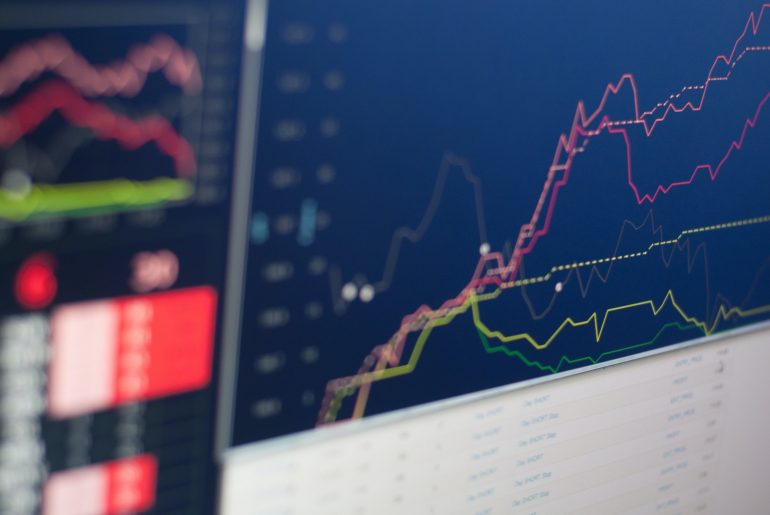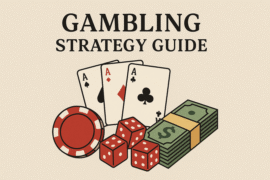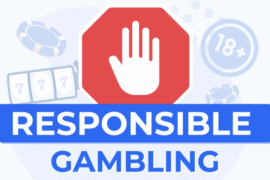This article may contain references to products or services from one or more of our advertisers or partners. We may receive compensation when you click on links to those products or services. Nonetheless, our opinions are our own.

Updated by Albert Fang
If you’ve been planning to get into online foreign trading and think it may be a good method to generate money, then you also might be wondering how to get started. If you want to trade in forex, it’s critical to have a solid grasp of the markets and procedures then only you’ll be able to better control the risks and make profitable transactions. You can even take help from online forex trading guides to get more knowledge about all the currencies and commodities.
If you are new to forex trading, go through the following ways to know more about them and how to become a successful trader.
Know About Your Forex
In order to trade efficiently, it is quite necessary to have a proper knowledge about the forex markets. You may gather more knowledge about forex trading by visiting forex related websites, reading books, and using other forex resources. You can even register for a free forex demo account and start practicing with it. It will help you to know more about trading platforms as well as assist you in becoming accustomed to using a certain trading platform.
Try Using a Micro Forex Account
The drawback of practicing forex trading via a demo account is that you will never know what it’s like to make a real trade with your hard-earned money. Hence, to experience a real trading situation with using a little amount of money, most trading instructors would suggest opening a micro forex trading account. Trading smaller amounts let you experience real time trades. This will give you more knowledge compared to what you can learn from a website or forex trading forum or from a book and it will also offer you a whole different perspective on whatever you learn while trading via a demo account.
Get Knowledge About the Currencies You Want to Trade
To begin your trading journey, you’ll also need to know what you’re trading. Beginners have a tendency to jump right in and trade in any currencies that may seem rising. They might even utilise unrestrained leverage and trade in both directions at random, which might result in getting unwanted losses. Currency trading is advantageous since it lets you leverage your investment and offers you a variety of currency pairs to trade with. However, this does not imply that you must trade them all.
Manage Emotions and Risks
When individuals get greedy, afraid or experience some kind of emotions during their trade, they tend to make risky decisions. This is the point when they tend to make false trade decisions and suffer huge losses. Always go for a trading chart with a rational attitude that only perceives the existence or absence of possibility for profit. If making a transaction feels emotional in any way, rethink why you’re doing it and attempt to go back into a more objective mentality.
Get Knowledge About the Markets
The importance of learning about the forex market cannot be underestimated. If you don’t have proper knowledge about all the currencies, you might end up making the wrong trades at the wrong time. Take the time to learn about currency pairings and how they are affected before jeopardising your own money. Invest some time in learning the markets and it will help you in the long run.
Look Out for the “Weather Conditions” of the Markets
Fundamental traders mostly make trades based on news and other financial and political data, whereas technical traders seek to anticipate market moves using technical analysis tools such as Fibonacci retracements and others. Whatever your trading style is, it is very much important that you use the resources available to you to identify possible trading opportunities in changing markets.
Conclusion
Making a career in the trading industry is quite a good choice for earning money. You just need to be careful and follow the above steps.

Reviewed and edited by Albert Fang.
See a typo or want to suggest an edit/revision to the content? Use the contact us form to provide feedback.
At FangWallet, we value editorial integrity and open collaboration in curating quality content for readers to enjoy. Much appreciated for the assist.
Did you like our article and find it insightful? We encourage sharing the article link with family and friends to benefit as well - better yet, sharing on social media. Thank you for the support! 🍉
Article Title: Best Ways to Learn Forex Trading for a Beginner
https://fangwallet.com/2021/06/25/best-ways-to-learn-forex-trading-for-a-beginner/The FangWallet Promise
FangWallet is an editorially independent resource - founded on breaking down challenging financial concepts for anyone to understand since 2014. While we adhere to editorial integrity, note that this post may contain references to products from our partners.
The FangWallet promise is always to have your best interest in mind and be transparent and honest about the financial picture.
Become an Insider

Subscribe to get a free daily budget planner printable to help get your money on track!
Make passive money the right way. No spam.
Editorial Disclaimer: The editorial content on this page is not provided by any of the companies mentioned. The opinions expressed here are the author's alone.
The content of this website is for informational purposes only and does not represent investment advice, or an offer or solicitation to buy or sell any security, investment, or product. Investors are encouraged to do their own due diligence, and, if necessary, consult professional advising before making any investment decisions. Investing involves a high degree of risk, and financial losses may occur including the potential loss of principal.
Source Citation References:
+ Inspo












































